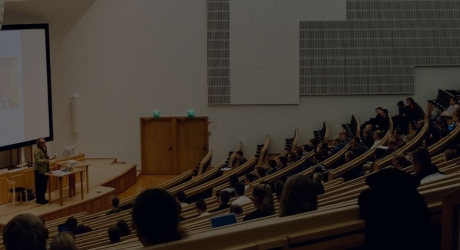There are three religions in the Semitic family – Judaism, Christianity and Islam. In historical order, Judaism comes first, Christianity second and Islam third. One teaching is common to all the three religions, that is, love.
During a visit to the US, I was invited by an American Church to deliver a lecture on Islam and peace. After my lecture a Christian scholar asked: ‘In Christianity there is a moral injunction: ‘Love your enemy’. Can you cite any such teaching from the Islamic scripture?’
I replied in the affirmative. In fact, all three Semitic religions have this precept in common. For example, the Old Testament, which is the sacred book of Judaism, says: ‘Hatred stirs up dissension, but love overlooks all offences.’ (Proverbs 10:12) It is recorded in the Bible that Jesus Christ once said: ‘You have heard that it was said, “You shall love your neighbour and hate your enemy.” But I say to you, love your enemies and pray for those who persecute you.’ (Matthew 5:43-44)
Now let me quote what is said by Islam. In one of its chapters, the Quran says: ‘Good and evil deeds are not equal. Repel evil with what is better; then you will see that one who was once your enemy has become your dearest friend.’ (41:34)
This Quranic teaching dispels the ‘we and they’ concept. By nature everyone is your friend. The only difference is that some are your actual friends while others are your potential friends. So try to turn this potential into actuality. This is the best formula for universal brotherhood and is common to all the three religions: Judaism, Christianity and Islam.
Love is the greatest human virtue. Where there is love, everything is in harmony, and where there is hate, all that is good remains in jeopardy.
The fact is that difference is part of nature. It has rightly been said: ‘Nature abhors uniformity.’ This being so, it is but natural that differences will arise between individuals and groups. Then what is the solution? Love is the only answer. If a man and woman have love in their hearts, they will be able to live together harmoniously as a family. Love is a guarantee that all the differences that may arise between them will be amicably resolved.
This phenomenon is aptly illustrated by the analogy of the shock absorber, a mechanical device that lessens shock by absorbing its force.
When a car travels along a road, due to potholes or uneven surfaces, it frequently receives a series of big or small shocks. This affects the vehicle’s wheels and the impact would instantly reach the traveller, were it not for the shock absorbers which guarantee that the effect of the impact will go no further than the wheels, and will not reach the traveller.
Love is just like a shock absorber within one’s heart. If you have any love for others, you will have this inbuilt psychological shock absorber which will absorb any shock that comes from others. You will remain cool and level-headed in every situation.
What is the rationale behind the ‘love-all’ formula? It is that every other person is your benefactor. It is your lack of awareness of this fact that makes you unable to adopt this love-all culture.
We are living in a civilization. Whatever we make use of is a gift of this civilization. What is civilization? It is an advanced stage of refinement in ethical and material matters resulting from continuous effort on the part of all mankind.
For example, when man started his life on the planet earth, human existence was in a primitive state. It then took thousands of years of the joint efforts of humanity to bring civilization into existence. For example, in the beginning, man used to walk on his own two legs. Then he started traveling on horseback. After long experience, the wheel was developed, thanks to which travel by car was made possible. The uses of steam power were later discovered and travel by steamship and rail began. Man then produced airplanes which made air travel possible and further facilitated the means of contact and communication. All this was not the work of any single human being: all of humanity was involved in this process.
The discovery of this reality about history gives rise to the culture of ‘love all’, while unawareness of this leads to the ‘hate all’ culture.
The truth is that the most realistic approach to life is to love all, while the most unrealistic is to hate all. This is why all three Semitic religions teach the importance of loving others — even those who may seem like our enemies.
Source: Leading a Spiritual Life










